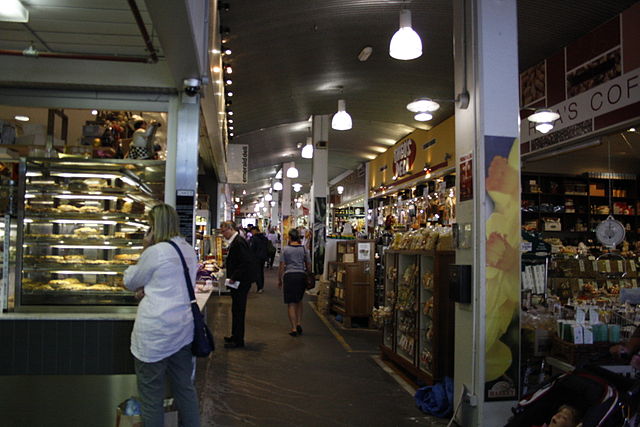 For the 10-nation ASEAN group, Singapore remains the freest economy in Southeast Asia and the second freest out of more than 180 countries analyzed worldwide for the 2017 Index of Economic Freedom, published by Heritage Foundation.
For the 10-nation ASEAN group, Singapore remains the freest economy in Southeast Asia and the second freest out of more than 180 countries analyzed worldwide for the 2017 Index of Economic Freedom, published by Heritage Foundation.
Now on its 23rd edition, the index analyzes economic policy developments in 186 countries, grading and ranking them based on 12 measures of economic freedom that evaluate the rule of law, government size, regulatory efficiency, and the openness of markets.
Singapore has maintained its Top 2 position today because of its openness to global trade and investment and its transparent and efficient regulatory environment, said the index.
Malaysia follows the city-state, ranked 27th in the world (up from 29th place in the 2016 index) and categorized as “mostly free.” Ongoing economic reforms have enhanced Malaysia’s competitiveness, said the report.
Four other ASEAN members are recognized as “moderately free.” Brunei Darussalam comes in at No. 35 from No. 51 previously. “Brunei continues to benefit from moderately well-maintained monetary stability and a relatively high level of market openness that facilitates engagement with the world through trade and investment,” said the index.
Thailand is in 55th place from 57 a year ago, the improvement sparked by government measures taken to enhance regulatory efficiency and better integrate the economy into the global marketplace.
The Philippines is ranked 58th, up from 70 in the 2016 report. “Despite the challenging global economic environment, the Philippines has achieved notable economic expansion, driven by the economy’s strong export performance and inflows of remittances that have bolstered private consumption,” it said.
Indonesia is in 84th place, up from No. 99 in 2016, as Indonesia’s reform-minded government has undertaken some necessary structural adjustments with a focus on stamping out corruption, better managing public finance, and improving the business environment.
Regarded as “mostly unfree” but also registering upward movements are Cambodia (94, from 112), Laos (133, from 155), and Burma (146, from 158).
Vietnam is the only ASEAN member to register a decline to No. 147 from No. 131 in 2016. Explained the report on Vietnam’s score: “Despite ongoing reform efforts, the regulatory environment is not particularly efficient or transparent. Despite progress, investment remains hindered by opaque bureaucracy and a weak judicial system. State-owned enterprises still account for about 40 percent of GDP, hampering the emergence of a more dynamic private sector.”
Globally, economic freedom has advanced in a majority of the world’s countries in 2016, as the global average of economic freedom increased by 0.2 point to a record level of 60.9 on a scale of 0-100, according to the 2017 index. Since the inception of the index in 1995, average scores have increased by over 5%.
In the 2017 index, 103 countries, most of which are less developed or emerging economies, showed advances in economic freedom.
China and Russia are among those that achieved their highest economic freedom scores ever, while the United States recorded its lowest economic freedom score ever.
The Asia-Pacific region is home to nine of the 20 most improved countries. On the other hand, Sub-Saharan Africa has the most countries recording notable score declines.
Of all the economies graded and ranked in the 2017 index, only five (Hong Kong, Singapore, New Zealand, Switzerland, and Australia) have sustained very high freedom scores of 80 or more, putting them in the ranks of the economically “free.”
A further 29 countries, including Chile, the United Arab Emirates, the United Kingdom, Georgia, the United States, and Mauritius, have been rated as “mostly free” economies with scores between 70 and 80.
A total of 92 economies, just over half of those graded in the 2017 Index, have earned a designation of “moderately free” or better. These economies provide institutional environments in which individuals and private enterprises benefit from at least a moderate degree of economic freedom in the pursuit of greater competitiveness, growth, and prosperity.
On the opposite side of the spectrum, nearly half of the countries graded in the Index—88 economies—have registered economic freedom scores below 60. Of those economies, 65 are considered “mostly unfree” (scores of 50–60), and 23 are considered “repressed” (scores below 50).
The Index of Economic Freedom provides compelling evidence of the wide-ranging tangible benefits of living in freer societies, said the Heritage Foundation.
It said greater economic freedom is correlated to higher per capita incomes and higher overall well-being.
Economic freedom is about much more than a business environment in which entrepreneurship and prosperity can flourish, it added.
“With its far-reaching impacts on various aspects of human development, economic freedom empowers people, unleashes powerful forces of choice and opportunity, gives nourishment to other liberties, and improves the overall quality of life.”
It continued: “Nations with higher degrees of economic freedom prosper because they tend to capitalize more fully on the ability of the free-market system not only to generate economic growth, but also to reinforce dynamic growth through efficient resource allocation, value creation, and innovation.”
Photo: Commander Keane





